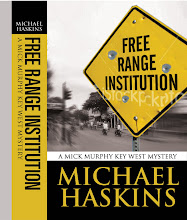With
the revolutionary changes in the publishing world today, presenting a clean
manuscript to an agent or publisher is important.
A
critique group is one of the easiest ways to get eyes on your manuscript for free,
before sending it out. My experience in the small critique group I attend works
well for me.
The
five of us are published authors, we meet once a week and can read up to ten
pages. We must have copies for the other participants to read along and to write comments on as each of us reads our
pages aloud. This can be time consuming, but is helpful. Then we take turns
critiquing what has been read. At the end of the critique, the pages with notes
go back to the writer.
I
find each part of this process important. It helps encourage me to write so I
can produce the ten pages, an easy task since I’ve finished writing long before
reading the last chapter at the critique group.
Reading
aloud lets me discover awkward phrasing or mixture of words that look good on
paper but sound horrible when read out loud. One of the members has an editor
complex and enjoys marking up my pages from an editor’s viewpoint. People pay
for this, I get it free.
As
happens, sometimes I’m told my pages move the story along and as often as not,
I’m told they make no sense in moving the story forward. Usually, the comments
fall in-between. On occasion all four participants agree and it’s usually that
what I wrote doesn’t advance the story. When that happens, I pay attention, go
home, read the notes on the pages returned to me and see what I can do to
correct the problem. I wouldn’t have seen the problem if it weren’t for the
critique.
The
critique process works in different ways for different people. I attended the
local ‘writers guild’ session and found it too big, too unorganized and more of
a social gathering than a critique session.
A
critique group has to be honest. Sometimes that honesty hurts, but if it is
helpful, it’s priceless. Writers have to have a thick skin and my critique
group has helped prepare me for reviewers!
A
good critique group’s honesty should cut both ways, pointing out why your
selection doesn’t work and/or why it does work. A writer should walk away not
bleeding but curious as to why things where said and what he/she can do to fix
it. If it’s praise, the writer needs to see what he/she did that brought on the
praise and try to repeat that style of writing, just as he/she should not want
to repeat what caused the confusion with bad pages.
I
wanted a critique group that had mystery writers/readers. For me, having to
explain over-and-over why you did something in the story to someone who doesn’t
read my genre is a waste of time, especially since it takes away from others
who may have a better understanding of the story line.
What
I didn’t want in a critique session is someone saying, “If I was writing this .
. .” I am not interested in anyone else style, just mine. I want to know what’s
confusing, what slows the pace or what makes no sense.
While
it’s always self-rewarding to show your writing to family and friends, unless
that includes Stuart Neville, Ken Bruen, Louise Phillips, Declan Burke, Tana
French and the like, family and friends don’t constitute a critique group.
Enjoy their comments and then go look for a critique group that will tell you
the truth.
The
more colleagues’ eyes you can get onto your pages, the better the book will be in
the end. You must be as giving and honest as you want the others to be.
Sometimes that’s not easy.
I
wouldn’t admit this in my group, but more often than not, the critique group’s
questioning something I’ve written has been more helpful than their praise. My
ego is stroked with the praise, but my book becomes better with the questions,
even when I bleed a little from it, and I become a better writer too.
One
size doesn’t fit all. Check out more than one critique group to see if you are
comfortable with the other participants. If not, move on. If all else fails,
you are probably not alone, so why not form your own critique group of fellow
writers/readers. In case you do that, remember what turned you off on the other
critique groups and avoid those mistakes.


















